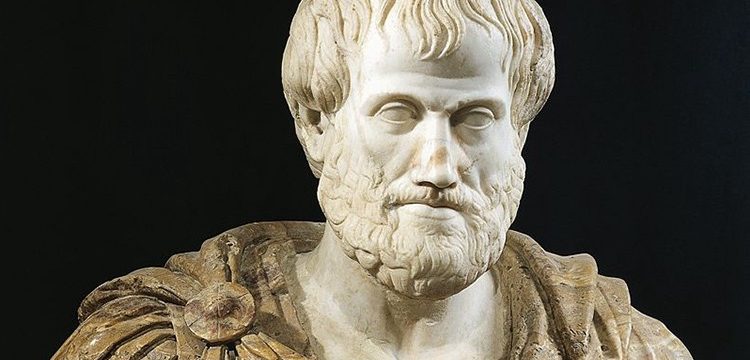A pastor friend sent me this question:
Should Christians read Aristotle’s Nicomachean Ethics?
My answer is: yes, read everything. Let me explain why. Aristotle points out something we can all know: our choices are aimed at ends. Some of these ends are intermediate meaning they are aimed at another end. There is a highest or final end. This is called the good. Aristotle tells us happiness is the good. For Aristotle, happiness is not an inner feeling but the condition of living well.
From there, the largest part of the book is about how to live a virtuous life. Virtue is a middle between two extremes. For example, courage is the middle between being timid and being foolhardy. A virtuous life is our best hope of a happy life. This idea of the middle is a platitude that fails to give real-life application. We would need to know how we measure the middle in any given instance. Some of his teaching makes it sound like we cannot know the middle until after the fact, which isn’t helpful in the least. This is very different from the specificity of God’s moral law.
Regarding the good, Aristotle is involved in circular reasoning. The good is happiness, and happiness is a well-lived life, and “well” is an adverbal form of “good,” so this is like saying the good is living a good life. He hasn’t actually told us anything about the good. “Chose the good by living a good life” isn’t informative.
To get out of this circle, Aristotle points us to the highest good: being like god. This is what my pastor friend was thinking about as great advice for any Christian. Don’t Christians teach we should be like God? Isn’t Aristotle just studying general revelation and teaching us what he finds there? No, this is where we need to understand what general revelation declares about God so that we are not manipulated into believing that Aristotle is teaching the truth about god.
Aristotle tells us his god, the unmoved mover, is involved in self-contemplation. We, too, should spend our time in contemplation of god. That sounds great, right? But what are we contemplating? The unmoved mover does not act on the world but instead is the mover in the sense that the world of change is moving toward it, and it does not move. The unmoved mover is unaware of humans and does not engage in providential rule over history. According to Aristotle, the material universe existed without a beginning. It is dependent on the unmoved mover for change but not for existence. If it were dependent for existence, then it would not have existed without a beginning.
Contrast this with the contemplation of general revelation, which we are called to in the Psalms. There we are told of the true God, and we realize Aristotle’s god is one of the idols of the nations. We are called to think about how God created the world (it had a beginning) about how God gave a moral law, that God judges sin and also disciplines believers, and that God imposed the curse on the world. And we are brought to scripture in seeing that God is both just and merciful. Humans, as sinners, need redemption, and only God can redeem us. There is none of this in Aristotle.
Do not make the mistake of thinking mentioning the Psalms means this is an appeal to special revelation. The Psalmist tells us we can know these things from general revelation. This is what it means to contemplate God: consider all of His works. Have you exercised your mind to do so?
Is there anything good in Aristotle? In offering a system, he failed and sinned by promoting an idol that has been sought by many millions. But you do find important insights here or there. Aristotle articulates the laws of thought and laws of inference. Aristotle gives a sound argument (a transcendental argument) for the laws of thought. Aristotle gives a sound argument that something must be eternal. Aristotle gives a sound argument that there is a highest good. His thinking contains the seeds to show that matter had a beginning. If he had applied the laws of thought, he would have seen this. Aristotle, like all unbelieving intellectuals, condemns himself.
So should a Christian read Aristotle? Yes. Just like David might have studied the works of the Canaanites. Not as exemplars of general revelation but as examples of idolatry. It requires the Christian to learn discernment and maturity in seeing the difference between Aristotle’s virtue and the moral law written on our heart. To discern the difference between Aristotle’s deity and the living God revealed in both general and special revelation. Many Christians are not able to make these distinctions and thereby fall into grave errors.
Paul reminds us that we should become mature. He includes that this means we can discern good from evil. Can you discern the difference between Aristotle’s view of the good contrasted with eternal life as knowing God in all that by which he has revealed Himself?

Leave a Reply